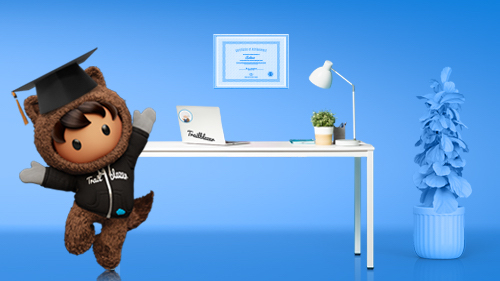
Get your FREE 30-day trial.
Please complete all fields.
Salesforce is proud to be named one of the Top 13 Companies for Women Technologists 2015 by the Anita Borg Institute! This award honors excellence in the hiring, representation, retention, and advancement of women technologists, and we couldn’t be more honored to make the list.
As a 15 year veteran of Salesforce’s technology team, this incredible news comes as no surprise to me. I have always believed that Salesforce is a great company for women. Here are three key ways we support women in technology.
Supporting diversity in tech is not a “women’s issue,” but a challenge we all need to solve together. At Salesforce, we have a thriving Women in Technology group that welcomes both men and women, and hosts regular speaker series, events, and gatherings. This group allows us to have open and transparent dialogue about challenges facing women in tech and solutions we can build together.
Salesforce is also a proud sponsor of the LeanInTogether initiative, aimed at involving more men in solutions for equality. Our Co-Founder Parker Harris recently wrote his solutions for getting more women in technology, including addressing unconscious bias, “the attitudes or stereotypes that affect our understanding, actions, and decisions in an unconscious manner.” One of our tech team’s top initiatives is to educate and raise awareness about this issue and help us all make better decisions in hiring, advancing, and retaining technical women.
Women are more likely commit to a company that provides opportunities for advancement and growth. At Salesforce, we offer unique programs that encourage everyone to learn new skills, take on bigger challenges, and innovate.
Opportunity Open Market (OOM) makes it easy for engineers to move between scrum teams at any major release boundary. With over 200 scrum teams working on vastly different technologies and products, OOM provides a ton of opportunity to learn and grow your technical skills. Read more about it here.
PTOn (“Paid Time On”) gives our technologists one day every month, or 12 days every year, to do something different than their day-to-day work. Some use their time to create new applications on our Platform, some work to improve our automation processes, and others spend time learning a new technology. Read more about what’s possible here.
Hack days give everyone a chance to showcase their technical chops and innovative ideas. At our last Hack Day, engineer Heaven Chen built a fun and easy way to pre-order your morning coffee at our company cafe. One cappuccino, coming right up!
Lean In Circles provide an informal forum for women (and men) to share and learn from each other. Here are five tips to start your own circle.
Increasing diversity in our industry also requires that more girls go into computer science and technical fields: we need to encourage and foster that interest in girls starting in elementary school. That’s why we make it a priority to work with girls in our communities in a variety of ways.
Every Salesforce employee has six paid days off every year to volunteer through our 1/1/1 model, and many use that time to build the next generation of tech women. Yasoja Seneviratne uses her time to teach a Girls Who Code club in Burlingame. Leah McGowan-Hare teaches coding with Black Girls Code. Our Women in Technology group hosts TechBridge Girls, inspiring girls to consider a career in STEM. Hundreds of employees teach the Hour of Code with Code.org. And there are countless other stories like these of employees giving back to build the next generation of technical women...a cause we can all rally around and support in our own different ways.
Including everyone, providing development opportunities, and investing in our next generation are three important ways we hire, retain, and advance technical women, and we hope they inspire other companies to to do the same. However, there is still work to be done, and we are passionate about continuing to improve the space for women in tech. I’d love for you to join us in the conversation! What can we all do to increase diversity in tech? Leave your comments below!